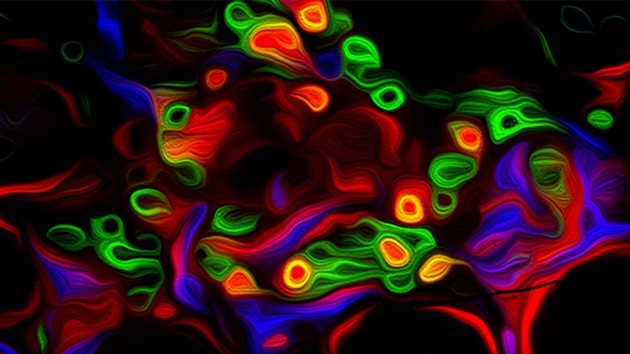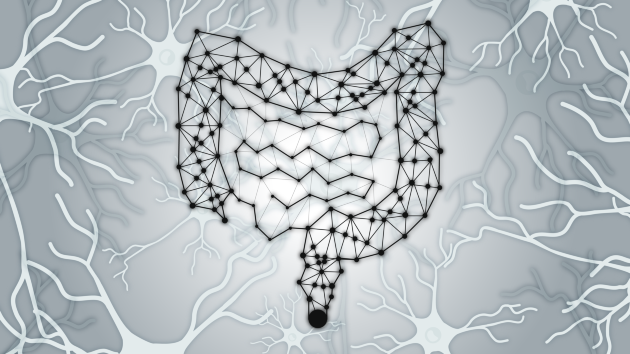Collection |
Collections
Filters
-
Collection Type
-
-
Collection |
 AI in health care
AI in health care
The use of artificial intelligence (AI), including machine learning and large language models, is revolutionizing health care, from drug discovery and development, through to applications in the risk stratification, diagnosis, imaging, monitoring, prognostication, and pharmacological and surgical treatment of patients.
Image: V. Summersby / Springer Nature Limited -
Focus |
 Liver Fibrosis
Liver Fibrosis
Chronic liver disease, a leading cause of death worldwide, is characterized by chronic inflammation and liver fibrosis, which might lead to cirrhosis and, eventually, liver cancer.
Image: Laura Marshall/Springer Nature Limited -
Series |
 Eliminating viral hepatitis
Eliminating viral hepatitis
Viral hepatitis is a global public health problem, and the burden of disease is increasing. In 2016, spurred by development of effective new treatments for hepatitis C and expanding access to hepatitis B vaccination, the 194 Member States of the WHO committed to eliminating viral hepatitis as a public health threat by 2030. Here, Nature Reviews Gastroenterology & Hepatology explores areas vital to meeting this ambitious target, from basic viral research to public policy.
Image: KATERYNA KON/SCIENCE PHOTO LIBRARY -
Collection |
 Stem Cells: from Single Cells to the Clinic
Stem Cells: from Single Cells to the Clinic
Recent technological progress has facilitated the study of how embryos develop, how embryonic cells transition between different states, how adult stem cells are maintained and differentiate, at unprecedented resolution.
Image: Deepti L Kumar and Tony DeFalco -
Collection |
 COVID-19 in gastroenterology & hepatology
COVID-19 in gastroenterology & hepatology
In this Collection, we bring you articles published by Nature Reviews Gastroenterology & Hepatology that cover the COVID-19 pandemic and its implications for the care of patients with gastrointestinal and liver diseases.
Image: Laura Marshall/Springer Nature Limited -
Series |
 Neurogastroenterology
Neurogastroenterology
In this article series by Nature Reviews Gastroenterology & Hepatology, basic, translational and clinical topics in neurogastroenterology are explored.
Image: Laura Marshall -
Series |
 Techniques, technology & analysis
Techniques, technology & analysis
In this article series, Nature Reviews Gastroenterology & Hepatology examines the cutting-edge techniques and technologies currently applied in gastrointestinal and liver research and clinical practice, and the approaches that might be available to investigators, clinicians and surgeons in the future.
Image: PhotoDisc/ Getty Images -
Series |
 MASLD/NAFLD
MASLD/NAFLD
Fuelled by increasing obesity rates, metabolic dysfunction associated steatotic liver disease (MASLD, formerly known as NAFLD) has emerged as a leading global cause of chronic liver disease in the past few decades. Despite growing prevalence, the factors influencing MASLD development and subsequent progression to metabolic dysfunction associated steatohepatitis (MASH), liver fibrosis, cirrhosis and hepatocellular carcinoma are poorly understood. In this article series, Nature Reviews Gastroenterology & Hepatology explores the epidemiology of MASLD, disease mechanisms and therapeutics, and clinical approaches to diagnosis and management.
Image: Caio Bracey -
Series |
 Cell & developmental biology in the digestive system
Cell & developmental biology in the digestive system
The gastrointestinal system comprises a plethora of different cell types that develop, interact, specialize and function in a complex, tightly regulated process and, in many cases, show remarkable plasticity. In this article series, Nature Reviews Gastroenterology & Hepatology explores different cell biology and developmental pathways involved in gastrointestinal health and disease, the role of stem and progenitor cells in tissue development and regeneration and recent advances in bioengineering, which might shape clinical approaches in the near future.
Image: PASIEKA -
Focus |
 Pancreatic cancer
Pancreatic cancer
Pancreatic cancer is a deadly disease with poor outcomes and is predicted to be the second leading cause of cancer death in some regions by 2030. This Focus issue highlights up-to-date translational advances in pancreatic cancer.
Image: Laura Marshall -
Collection |
 Women’s health
Women’s health
Research into women’s health has suffered from historical neglect and lack of funding.
Image: Lara Crow/Springer Nature Limited

 Key Advances in Gastroenterology & Hepatology
Key Advances in Gastroenterology & Hepatology